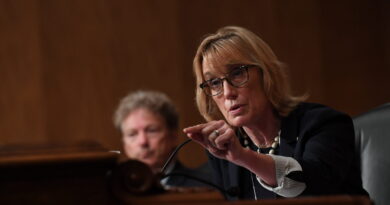No Election Winner Yet: How To Spot Misinformation While You Wait For Results

Misinformation about the vote could get worse after all the ballots are returned, election security experts warn.
Getty ImagesThis story is part of Elections 2020, CNET’s coverage of the run-up to voting in November.
Calling the winner in the US presidential contest is taking longer than in recent elections. Many counties are still tallying votes because the coronavirus pandemic prompted a surge in requests for absentee ballots. Over 96 million Americans had voted as of Monday, representing more than 45% of registered US voters, with many turning in vote-by-mail ballots that’ll take time to count before we’ll know whether President Donald Trump or former Vice President Joe Biden has won the election.
The lack of a final result hasn’t stopped the flow of speculation, though. The public has already heard wild rumors, false reports and premature declarations of victory, just as election security experts warned would happen. Just look at what Twitter had to deal with, such as tweets suggesting polls would be open the day after the election, reports of a fake AP Politics account, and rumors that Republican voters in Maricopa County, Arizona, were given Sharpie pens that wouldn’t work with ballot scanning machines (the county election agency said the pens work with the ballot readers). YouTube also battled misinformation, pulling down streams broadcasting fake election results. Added to that, the president weighed in on election results by way of posted messages that social networks felt needed to be labeled.
Inaccurate reports are likely to keep coming. Some of it will be disinformation, or deliberately false and misleading content. Misinformation is a broader term that describes incorrect information regardless of whether the person sharing it knows it’s false. Some bad information will originate from fake accounts, possibly run out of Russia. Some may come from politicians themselves. Almost all of it will be amplified by people who don’t know it’s false.
As usual, misinformation will spread through social media platforms including Twitter, Facebook, Instagram, YouTube and Reddit. (Major social media companies have plans to combat misinformation.) Group messages on WhatsApp, Telegram and other services will also magnify misinformation, as will political commentary on YouTube and podcasting platforms, as well as political talk shows on TV and radio stations.
Read more: Facebook, Twitter plan to warn you if politicians prematurely declare victory
Chris Krebs, the country’s top election security official, urged people to be cautious about reports of election results, saying in remarks at a cybersecurity conference, “Think before you share.” His agency, the US Cybersecurity and Infrastructure Security Agency, launched a website called Rumor Control to help voters sort out whether claims of election fraud and vote tampering are accurate.
You don’t have to get caught up in the expected flood of speculation and outright falsehoods, though. Here’s how you can spot information that doesn’t pass the smell test.
How can I recognize election misinformation?
You can’t stop your Uncle Mike from posting misleading memes, but you can keep yourself informed. That way you’ll be well positioned to avoid spreading misinformation yourself.
Media literacy experts suggest several techniques for vetting information you find online. First, check out the source of the information itself. You can look online for information on potential biases or political affiliations that weren’t obvious from the original post. Some services have created bias ratings for news outlets and individual stories, including AllSides, NewsGuard and Ad Fontes Media. The Pew Research Center has mapped the political leanings of news consumers to the outlets they trust most, which can give you added context.
If you see the information from news sources on social media, check that it’s the verified account of the news agency or reporter. On Twitter, that means looking for the blue check mark next to their name, and on Facebook, check for a “verified” badge. That by itself doesn’t make the information correct, but it’s a good indication that the content is coming from the source it’s claiming to come from.
Next, see if you can find the same information reported somewhere else — and not just a news story based on the first one you saw. If you can’t confirm the facts somewhere else, it’s a good idea to see if you can find any indication that it’s a false report.
If the content contains a picture, like memes often do, you can run a reverse Google image search on the photo and find out more about where it comes from and what it really shows. You may find the photo is taken out of context, or actually came from an old news story on a totally different topic. You can also check sites like Snopes, which debunks or verifies stories and memes, or a political fact-checking website, such as the Poynter Institute’s PolitiFact, that can tell you if a post or story is likely false.
If you want to dig deeper, you can call the reference desk at your local library.
How could election misinformation possibly get worse?
Yes, it was already bad. According to academic researchers and US intelligence agencies, both state-sponsored actors and shady, click-seeking website owners have created and spread misleading or flat-out false information for years. These intentional efforts are called disinformation.
But it’s been getting worse. “The easiest prediction I can make for you is that we’re going to see a whole lot more misinformation,” Dan Wallach, a computer science professor at Rice University, said of the 2020 election. And it won’t just be troll farms sponsored by the Russian government this time, he added. “I can see many countries deciding that it’s worth it for them to manipulate us.”
Waiting for the results of this election will put many us in a heightened state of anticipation. Between the coronavirus pandemic and our extremely polarized politics, we’re desperate for answers. Just as research shows emotional arousal makes younger and older people more prone to financial fraud, this mindset could make us worse at sorting out fact from fiction. And it could lead to someone unwittingly passing on the bad info, adding to the giant pile of misinformation that already exists on the internet.
People who create made-up news reports, misleading memes and conspiracy theories know we’re all susceptible. Getting us to share their posts could become even easier as the voters scream (inside their hearts, at least) for election results.
What’s in it for people who start misinformation after the election?
If the votes are already cast, you might wonder whether it matters when your Uncle Mike posts a false report of election fraud on Facebook. Here’s the problem: Misinformation can still do damage after the polls close. Most importantly, election security experts say, it could cause people to lose faith in the election’s results.
In the case of the 2020 US presidential election, the embrace of absentee voting has already led to false reports of rampant voter fraud, as well as intensified worries about limited access to ballot drop boxes and polling places. A rising tide of misinformation aims to delegitimize the voting process in general, according to July research from academics with the Election Integrity Project. As a result, the public is primed for reports of irregularities in voting.
The trouble will be sorting out which reports are true and which are bogus.
READ MORE HERE



